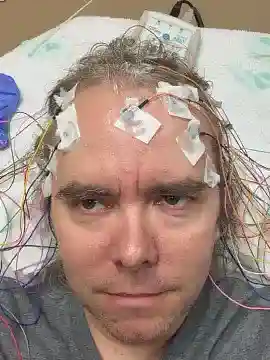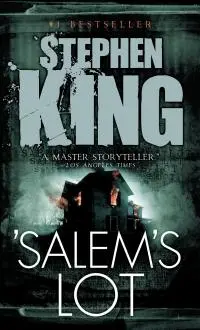Photo by Andrea Piacquadio
Toward the end of 2020 I decided to make a concerted effort to catalog all the stories I’d ever written, from flash fiction to novel length works. I wanted to know the submission and publication histories of everything I’d written. It’s an ongoing process that may warrant its own article. Not counting ghostwritten work, it came out to over 400 stories. Including ghostwriting, it’s over 1000 stories.
I had to open each file to get wordcounts and, in more than a few cases, to remind myself what the story was about. Then, I had to be sure it was “my story” and not one I had written for someone else. There’s something unnerving about finding a 9000 word story I have no memory of writing and trying to figure out what it is.
In a few instances, I was pleased to find old gems that I’d forgotten and were even better than I remembered. In a number of other examples, finding a story I’d written a decade ago that had been rejected four times was an exercise in self-torture. I can’t believe I let four people read this terrible story.
I’ve gotten better over the years, especially the years I’ve been writing full time. It would have been difficult to get worse than a 9000 word story with no beginning, middle, or end. I sent that to four editors I hope have long since forgotten it and me.
One of the biggest differences between then and now, beyond a better understanding of what makes a story work, is the improvement between my first and final drafts. Bad habits shift over time, and some get cast aside permanently, but there are some common elements in all my first drafts that were illustrated in stark terms by cataloging my writing.
These are the ten problems I seem to need to fix in all my first drafts.
1. Repeated Words
By this I do not mean doubling up a word as I’m typing. That typo happens too. I mean having a lot of characters “looking” in a story. If I’m not conscious of it, I use the word “back” a ridiculous number of times. It is worse with more obscure words that I get obsessed with and start throwing into stories multiple times in a row. Those special words stand out.
In On Writing, Stephen King mentions the word “zest” and a terrible short story he read by another author who couldn’t stop using it. King said, he didn’t believe he had ever used “zest” in any of his stories. Then, I found it in Salem’s Lot. Then, I found it in two other novels. Just one use each, though. If he hadn’t mentioned it, I wouldn’t have noticed. King does have a tendency to fixate on a word that will show up in a few novels in a row before drifting out of use. His “zest” is probably the word “obdurate.” It shows up a ton in 11/22/63, but that was purposeful. It shows up in a lot of earlier novels too, and stands out because it is an obscure word. It doesn’t fly by the eyes like “the” does.
I’m no Stephen King, but I have to edit out the clusters of “zests” and “obdurates” that find their way into all my first drafts.
2. Omitted Words
This is one of the most common typos for most people. You think the word, but while typing quickly you don’t type the word before moving on to the next word in the sentence. Not a problem as long as you find it before you put it in readers’ hands. Also, this is one of many arguments for beta readers, proofreaders, and professional editors. This is the one error your brain is least likely to see the more times you read over your own work.
As I’ve been doing live writings on Twitch, this has been illustrated for me right before my eyes. When I edit the videos of the initial streams, I’ll literally watch and hear myself say the word as I’m speaking the story out loud to viewers, but then watch myself not type that word in the middle of the sentence. It happens most often when I go back to change a piece of a sentence that wasn’t quite right for me. I’m particularly prone to omit words when micro editing while drafting.
3. Unconnected Themes
This isn’t a bad one, but it points to the value of rewrites. As I’m writing a story of any length, but especially in longer works like novels and novellas, I won’t realize a theme, a bit of symbolism, or a callback in the story until I’m revisiting it. I’ll see that a color or an emotional tone is sprinkled throughout the story, but just hasn’t been connected together to make the most of it thematically. Usually, I’ll pick up on it in the second draft and get it just right in the third. Then, it looks like I knew it was there all along in the final draft.
4. Missing Setup
I’m not always a pantser, writing by the seat of my pants without an outline, but I am a pantser a lot, especially with short stories. As a result, I’ll introduce elements late in a story that have to be set up earlier to really be justified. That has to be done in the editing. Certain character choices or traits will be significant to the end of the story in the first draft, so I have to establish the hints of those traits early in the second draft to make them work for the reader.
5. Wandering Words
Max Booth III is an excellent author and publisher who is big on the idea of starting the story in the right place. He believes authors often start their stories too soon as they wander through setup before finally getting to the real action. His suggestion is to start cutting from the front of the story while editing. Could you start with the second paragraph instead of the first? Could you start with the third instead of the second? Keep cutting until you get to the first bit of story that cannot be cut, and that’s where your story begins. If you can keep cutting all the way through the story until the end, you’re in trouble. I sent that 9000 word story to four different editors.
There’s always extra words and passages wandering away from the story and the action that need to be cut from my first drafts. I’ve gotten better about my beginnings, but I still start there. Too much description about a particular thing sometimes needs to be cut down to one sharp line. Too much of a character’s thoughts need to be abbreviated or displayed through their face or actions.
6. Smell, Feel, and Taste
I have plenty of sight and sound in every first draft, but I’m often missing the details that really immerse the reader in the world. I’m getting better about it, but I miss details from the other senses in my first draft and solving a flat first draft for me is often helped by expanding the sensory input in the second draft.
![]() 7. The Wrong Name
7. The Wrong Name
This one isn’t dire and is mostly an issue of personal preference, but I change names a good bit from the first draft to the final draft. In the fury of the first draft, I’ll gravitate toward the same names for people, streets, towns, etc. Upon editing, I can usually do better with a few of those names.
I put together a short story collection a while back. The stories ranged from near the beginning of my writing career to the present. As I edited them again in order, I found the name Jeff in several stories. Over a decade of writing, you miss how often Jeff stops by for a story. In my case, Jeff had clearly overstayed his welcome. I limited myself to one Jeff in the collection. I missed one name change for a Jeff in one of the other stories and the editor’s note upon finding that error was “Who the hell is Jeff?”
Indeed, who the hell is Jeff?
8. Head Hopping
This is the idea of staying with one perspective character in a story or one per scene or chapter. You as the reader don’t get access to the thoughts of one character and then drift into the head of another during a scene, even in omniscient third person perspective. That is head hopping. The difference between head hopping and omniscient voice is that omniscient voice would not give the second character’s thoughts in that character’s voice. Some editors and publishers still consider that head hopping if there is not a clear break in the scene. This isn’t literally in all my first drafts, but I have to watch for it. I’m still not convinced this doesn’t have its place in storytelling, but editors will stop talking to me if I keep doing it, so I make an effort to fix it.
9. Sentence Variation
I’m not nearly as bad about this as I was in the past. I had a tendency to lock into the same sentence structure over and over and it created a bad rhythm for the story. I especially did it when I was in an action scene and was writing it quickly. In every first draft, there is usually a section where I have to change up a few sentences in the middle, so they aren’t all the same.
10. More Punch Needed on the Ending
You have to stick the landing. Sometimes, I’ll have the right ending. It’s a good ending, but it doesn’t quite have all the power it could deliver. Many times, the fix is subtle. An extra line or a rewording of the last line does it. It can be something adjusted in the paragraph or two before the ending so that the last lines land stronger. I don’t have to rewrite every ending of every story, but there is almost always a little adjustment needed in the edits.
I try to be fearless with my first drafts. I don’t let fear of getting it wrong get in the way of me focusing on the story and getting it all down as best I can. I understand in doing it this way I need to be prepared to do some heavy lifting in the edits. It’s not always a mess in the first draft, but there is always work to be done. Knowing myself as a writer means picking up on my bad habits enough to catch them in the revision phase. Over time, that awareness sinks in and it becomes subconscious, allowing me to avoid those things more without breaking the flow of drafting. There will always be things wrong in my first drafts, but that’s part of the process.
Get Salem's Lot at Bookshop or Amazon

About the author
Jay Wilburn lives with his wife and two sons in beautiful Conway, South Carolina. He is a full-time writer of horror and speculative fiction. Jay left his job as a teacher to become a full time writer and has never looked back. Well, that’s not entirely true. He wants to be sure he isn’t being followed, so he looks back sometimes.
 7. The Wrong Name
7. The Wrong Name








